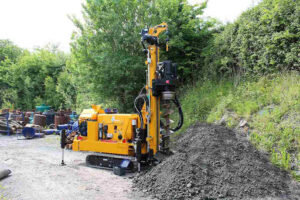
Rai Van
Rai Van is a term that has intrigued many, shrouded in mystery and rich with cultural significance. This fascinating concept often leaves people curious and seeking a deeper understanding. Shrouded by mystery and claimed to have originated many centuries ago, Rai Van has inspired many debates and discussions, which also makes it an interesting study topic.
It is a common dilemma faced by many learners that the more something appears to be simple, the harder it is to understand. This article will try to shed light on the different factors involved in Rai Van in a simplified manner. It delves into its historical background, key features, and modern-day relevance. By exploring these aspects, readers will gain a comprehensive view of what Rai Van truly entails.
For those eager to uncover the secrets of Rai Van and understand its impact on various facets of life, the journey begins here. Read on to discover the intricate world of Rai Van.
What is Rai Van?
Rai Van is really a formation that reflects some cultural, historical, and social aspects. From the earlier cultural perspectives, it expanded to broader dimensions that have enormous impacts in today’s world. It is suggested in the case of Rai Van that the essence of the activity is, by and large, associated with social unification based on the premises of common memory. Understanding Rai Van requires delving into its roots and appreciating its evolution over time. Wishing is more than just an expression; its it’s meaning lies in its ability to be a lifestyle that has prevailed for centuries as a belief as well as a culture.
The History of Rai Van
It will be seen that the background of Rai Van has been as varied and multitudinous as the cultures with which it has intersected. The roots date back to early societies as it was used in various practices in religious ceremonies and other functions. Historically, Rai Van has evolved, going through massive changes over the centuries in response to historic events and shifts in society. This paper focuses on the historical development of the Rai Van dance from its inception as a religious ritual and then traces its growth up to current practices. Historical analysis leads to the realization of the importance of KM today and the role that it will play even in the future of society.
Geographic Distribution of Rai Van
Rai Van’s influence extends across various regions and countries, each adding its unique flavor to the concept. Predominantly found in areas with rich cultural histories, Rai Van reflects the diverse traditions and customs of these areas. The demographic spread of Rai Van highlights its adaptability and relevance across different societies. Rai Van is cross-influenced by factors including migration, trade, and cultural exchange, making it highly prevalent within societies. Studying its localization enables us to appreciate better the historical and present influences that must have a direct impact on the company’s further evolution and success at various locations around the world.
Key Features and Characteristics of Rai Van
Rai Van is characterized by several unique features that distinguish it from other cultural phenomena. One of its defining attributes is its ability to bring communities together through shared practices and rituals. Rai Van also focuses on the traditions and teachings with regard to their roots and heritage usually taught in the family. Also, it means the totality of certain belief systems that provide power to the procedures that are to be carried out by individuals who subscribe to them. By exploring these key features, we can gain a clearer understanding of what makes Rai Van so special and why it continues to hold a significant place in the hearts of many.
The Role of Rai Van in Modern Society
In today’s fast-paced world, Rai Van continues to play a vital role in various aspects of life. Its influence can be seen in areas such as arts, technology, and education, where it provides a source of inspiration and guidance. Rai Van’s principles and values offer a framework for individuals and communities to navigate the complexities of modern life. Whether through traditional practices or contemporary adaptations, Rai Van remains relevant and meaningful. By examining its role in modern society, we can appreciate how this ancient concept continues to evolve and adapt to the changing times.
Prominent Figures and Entities Associated with Rai Van
Throughout its history, Rai Van has been shaped and influenced by numerous prominent figures and entities. These individuals and organizations have played crucial roles in preserving and promoting Rai Van’s traditions and values. From historical figures who laid the foundations of Rai Van to modern-day advocates who continue to champion its cause, their contributions are invaluable. Understanding the impact of these key players provides insight into the development and sustainability of Rai Van. It also highlights the collaborative efforts that have ensured its enduring legacy.
Challenges and Controversies Surrounding Rai Van
Despite its many positive aspects, Rai Van is not without its challenges and controversies. Common misconceptions and misunderstandings often cloud its true essence, leading to debates and criticisms. Additionally, the evolving nature of Rai Van can sometimes clash with modern values and beliefs, creating tension and conflict. Addressing these challenges requires a nuanced understanding and a willingness to engage in open dialogue. By exploring the controversies surrounding Rai Van, we can foster a more informed and balanced perspective, ultimately contributing to its continued growth and acceptance.
Future Prospects of Rai Van
Looking ahead, the future of Rai Van appears promising. Predicted trends and developments suggest that Rai Van will continue to adapt and thrive in response to changing societal needs. Its potential impact on various sectors, including culture, education, and technology, is immense. As more people seek to reconnect with their heritage and traditions, Rai Van offers a pathway to achieving this. Future research and exploration areas will further uncover its depths, providing new insights and opportunities for growth. The journey of Rai Van is far from over, and its future holds exciting possibilities.
Conclusion
In conclusion, Rai Van is a rich and multifaceted concept that encompasses a wide range of cultural, historical, and social elements. Its journey from ancient traditions to modern-day relevance highlights its enduring significance and adaptability. By exploring its history, key features, and current role in society, we can gain a deeper appreciation for Rai Van and its impact. Despite the challenges and controversies it faces, Rai Van continues to inspire and guide individuals and communities. As we look to the future, the mysteries of Rai Van promise to unravel further, offering new insights and opportunities for exploration.
Frequently Asked Questions (FAQs)
What is Rai Van?
Rai Van is a multifaceted concept encompassing cultural, historical, and social elements, originating from ancient traditions and evolving.
Why is Rai Van important?
Rai Van holds significant cultural and historical value, connecting communities through shared heritage and traditions and influencing various aspects of modern society.
How has Rai Van evolved?
Rai Van has evolved from ancient rituals to modern-day practices, influenced by historical events, societal changes, and cultural exchanges.
Who are the key figures associated with Rai Van?
Numerous prominent figures and entities have shaped and promoted Rai Van, from historical founders to modern advocates.
What are the prospects for Rai Van?
The future of Rai Van looks promising, with potential impacts on culture, education, and technology as it continues to adapt and thrive in response to societal needs.







